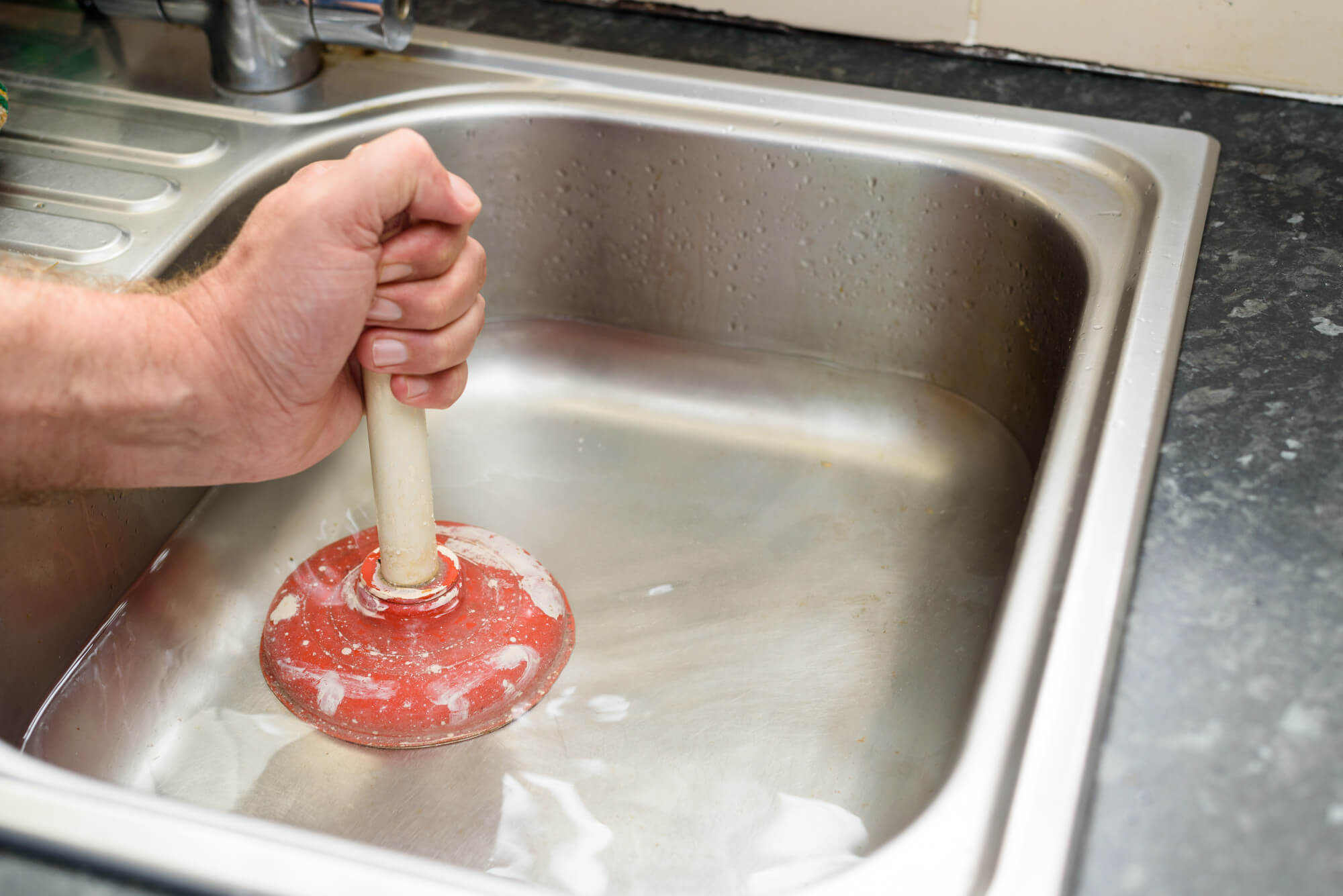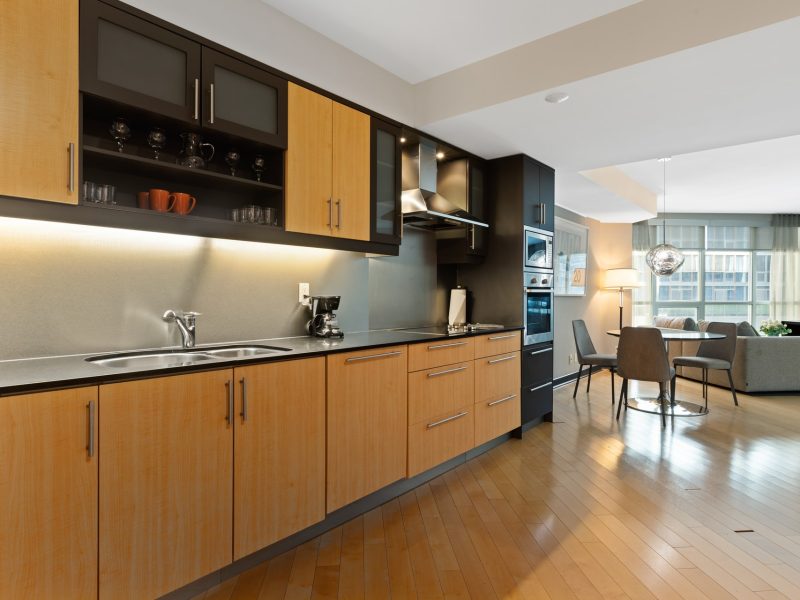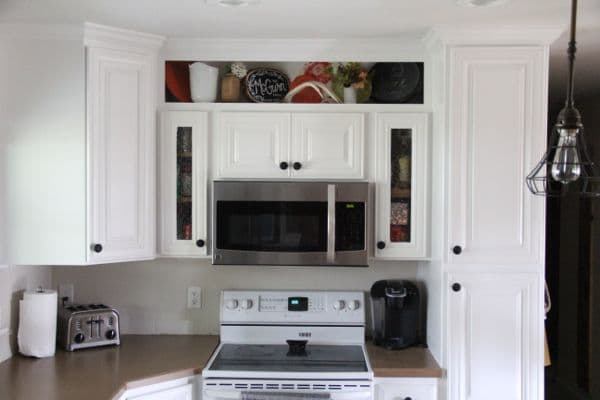If you’ve ever had the unfortunate experience of dealing with a kitchen sink that won’t drain, you know how frustrating it can be. It’s not only an inconvenience, but it can cause serious damage if not addressed quickly. Knowing the reasons behind why your sink won’t drain can help you determine the best course of action for fixing it. Common causes of a clogged kitchen sink include a buildup of food waste, soap residue, hair, grease, and foreign objects. These blockages can be remedied by using a plunger, drain snake, or chemical drain cleaner. If the clog is caused by a broken pipe or other plumbing issue, it is best to call a professional plumber to prevent further damage.
Identifying the Problem
Having a kitchen sink that won’t drain can be a huge inconvenience. It can be difficult to identify the root cause of the issue, and the solutions available to you depend on what’s causing the blockage. In this blog, we’ll discuss the common reasons why a kitchen sink won’t drain, and how to identify the problem.
The most common cause of a clogged kitchen sink is a build-up of grease and food particles. Grease and food can easily accumulate over time, forming a blockage in the drain. This blockage can prevent the water from draining and cause the sink to back up. Other causes of kitchen sink clogs include debris, soap buildup, and hair.
It’s important to identify what is causing the blockage in order to determine the best solution. If you suspect a grease clog, you can try to dissolve the blockage with a chemical drain cleaner. However, if the blockage is caused by larger particles, such as debris or hair, you may need to use a plunger or snake to remove the blockage.
If the blockage is too deep to reach, you may need to call a professional plumber. A professional can use specialized tools to remove the blockage and ensure that your kitchen sink is draining properly.
Identifying the source of the blockage can be challenging, but it’s important to do so in order to find the right solution. In this blog, we discussed the common causes of kitchen sink clogs and how to identify the problem. With the right knowledge and tools, you can ensure that your kitchen sink is draining properly and avoid further plumbing issues.
Common Causes of Kitchen Sink Drainage Issues
Kitchen sink drainage issues can be a huge inconvenience and cause much frustration. The good news is that kitchen sink drainage issues often have simple causes and solutions. Before calling a plumber, it’s always worth taking a look at common culprits that may be causing your kitchen sink drainage problems.
The first and most common cause of kitchen sink drainage issues is a clogged drain. Grease, food, and other debris can easily build up over time in your pipes and lead to a clogged drain. If your sink is draining slowly or not at all, it’s likely a clogged drain is to blame.
Another common cause of kitchen sink drainage issues is a broken pipe. If your sink is leaking, it’s likely a broken pipe is causing the issue. Broken pipes can be caused by a number of things, including corrosion, tree roots, and settling of the soil around the drain.
A third common cause of kitchen sink drainage issues is an issue with the garbage disposal. If your garbage disposal is not properly installed or maintained, it can lead to drainage issues. If you can hear your garbage disposal running but the sink is not draining, it could be an issue with the unit itself.
These are some of the most common causes of kitchen sink drainage issues. If your kitchen sink is not draining properly, it’s worth taking a look at these causes before calling a plumber. With a little bit of investigation and maintenance, your kitchen sink should be draining properly in no time.

Credit: myguysnow.com
DIY Solutions to Unclogging Kitchen Sink Drains
Kitchen sink drains are often susceptible to clogs, leading to water backup and other plumbing issues. It is important to act quickly in order to prevent the issue from escalating. Fortunately, there are a few simple do-it-yourself solutions to unclog your kitchen sink drain.
One of the most effective methods is to use a plunger. To do this, make sure the sink is full of water and then place the plunger over the drain. Pump it vigorously for a few minutes and then lift the plunger up quickly. If the clog is cleared, the water should drain freely.
If the plunger fails to clear the drain, then you may need to use a drain snake. This is a tool that looks like a large metal spring and is designed to fit into narrow plumbing fixtures. Insert the snake into the drain and rotate it until it reaches the clog. Pull the snake out slowly and the clog should come with it.
Finally, you can use a chemical cleaner to break down stubborn clogs. Chemical cleaners should be used as a last resort, as they are harsh on the environment and may cause damage to your plumbing system. Mix the cleaner with hot water and pour it down the drain. Wait a few hours and then run warm water to check if the clog has been cleared.
With these simple DIY solutions, you should be able to quickly and effectively unclog your kitchen sink drain without the help of a professional. However, if you’re not comfortable attempting these tasks, be sure to contact a plumber to get the job done safely and properly.
When to Call a Professional Plumber
Kitchen sink drain problems are a common and often vexing issue. From clogs to slow draining, a malfunctioning kitchen sink can make life difficult. It’s important to know when to call a professional plumber to take care of the problem.
The most obvious indication that it’s time to call a plumber is if the sink won’t drain at all. If the sink is completely clogged, it will require professional help to clear it out. If the sink is draining slowly, it may be due to a buildup of gunk, grease, and other debris. This can be cleared out with a good drain cleaner, but if the problem persists, it’s probably time to call a plumber.
A professional plumber can also help if you’ve tried unclogging the sink yourself and it still isn’t working properly. A plumber can inspect the plumbing system to find the source of the problem and determine the best course of action.
If you’re experiencing a kitchen sink drain issue that you can’t seem to fix on your own, it’s time to call a professional plumber. A qualified plumber will have the knowledge and tools necessary to quickly identify and fix the problem, so you can get back to your daily routine.

Factors to Consider When Choosing a Plumber
When it comes to plumbing-related repairs, it’s important to hire a qualified professional who can provide quality work. But with so many plumbers available, how do you know which one to choose? There are several factors to consider when selecting a plumber, including experience, reputation, and availability.
Experience is key – the more experienced a plumber is, the more likely they are to be able to quickly and accurately diagnose the issue and provide quality work. You can research a plumber’s background online, or ask for referrals from friends and family.
Reputation is also important – a plumber’s reputation speaks volumes about their professionalism and customer service. Check online reviews or ask around to get an idea of the plumber’s reliability.
Finally, availability is key – you want to make sure the plumber you hire can respond quickly and be available when you need them. Ask about their response times and availability, and don’t forget to ask about their fees and payment policies.
By taking the time to do your research, you can make sure you hire a qualified plumber who can get your kitchen sink drain working again.
Maintaining Your Kitchen Sink Drain
A clogged kitchen sink drain can be a major inconvenience, but it’s something that can be avoided with proper maintenance. In order to keep your kitchen sink drain clear of debris, there are a few simple steps you can take. First, you should make sure to regularly clean and inspect the sink area. Be sure to remove any food particles and grease that may have built up in the drain. Additionally, you should use a drain strainer or a garbage disposal to prevent food scraps from clogging the pipes. Additionally, you should regularly pour boiling water down your sink’s drain. This will help to keep the drain free-flowing. Lastly, you should also use a chemical cleaner every few months to clear out any buildup. By following these steps, you should be able to keep your kitchen sink drain clear and running smoothly.
Tips for Preventing Future Drainage Issues
Has your kitchen sink been clogged so much that it won’t even drain anymore? This is a common problem in many households, but the good news is that there are some simple steps you can take to help prevent future clogs and drainage issues.
Firstly, it’s important to keep an eye out for what gets put down the drain, especially items such as grease, coffee grounds, eggshells, and other food remnants, as these can all contribute to a clogged sink. Make sure to dispose of these items in a compost bin or trash can instead. Additionally, you can prevent hair and other gunk from collecting in the drain by installing a mesh drain strainer to trap any culprits.
It’s also a good idea to regularly clean out your sink’s pipes. A natural solution is to pour a cup of baking soda and a cup of vinegar down the drain, followed by a pot of boiling water. This should be done every few months to help keep the pipes clear.
Finally, if you find yourself dealing with a clog, you can use a plunger or drain snake to try and dislodge it. If this doesn’t work, you may need to call a plumber for assistance.
By following these tips, you can help to ensure that your kitchen sink won’t be clogged and won’t experience drainage issues in the future.
FAQs About the Why Won’t My Kitchen Sink Drain
1. What could be causing my kitchen sink to not drain properly?
Clogged pipes and drains are the most common cause of a kitchen sink not draining properly. This could be due to a buildup of debris such as food scraps, grease, soap, hair, and other objects that have gotten stuck in the pipes.
2. How can I fix my kitchen sink if it is clogged?
You can try to unclog the sink yourself by using a plunger or a chemical drain cleaner. If these methods do not work, you should call a plumber to come and take a look.
3. Is there anything I can do to prevent my kitchen sink from clogging?
Yes, there are a few steps you can take to reduce the likelihood of your kitchen sink clogging. Always make sure to run hot water down the drain after using the sink to help break down any debris that may have accumulated. Additionally, use a strainer in the sink to catch any food scraps and debris that may otherwise go down the drain.
Conclusion
It is important to identify the cause of a clogged kitchen sink, as it can be a simple fix or a much more complex issue. If a basic solution such as cleaning the trap or using a plunger does not work, then it is likely that the clog is deeper in the pipes and more serious measures, such as snaking the drain or using a chemical cleaner, may be necessary. In the event that none of these methods work, it may be necessary to call a plumber or consider replacing the pipes. No matter what the cause, it is essential to properly identify and address a clogged kitchen sink in order to prevent further damage.


